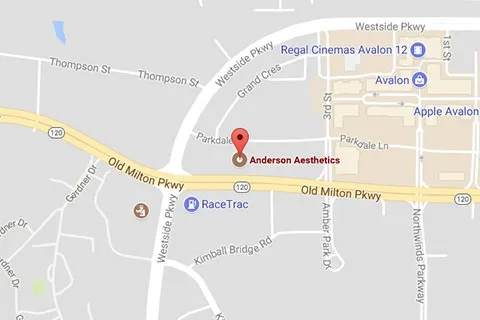JASON JOHNSON
Follow along for Jason’s hair restoration transformation
At Anderson Center for Hair, we’re all about hair, but this story goes beyond hair. It’s also about self-confidence, transformation, and a life-changing experience. Join us as we follow Jason on his journey to more hair via a follicular unit extraction (FUE) procedure with the WAW Duo handheld device.
JASON JOHNSON’S JOURNEY
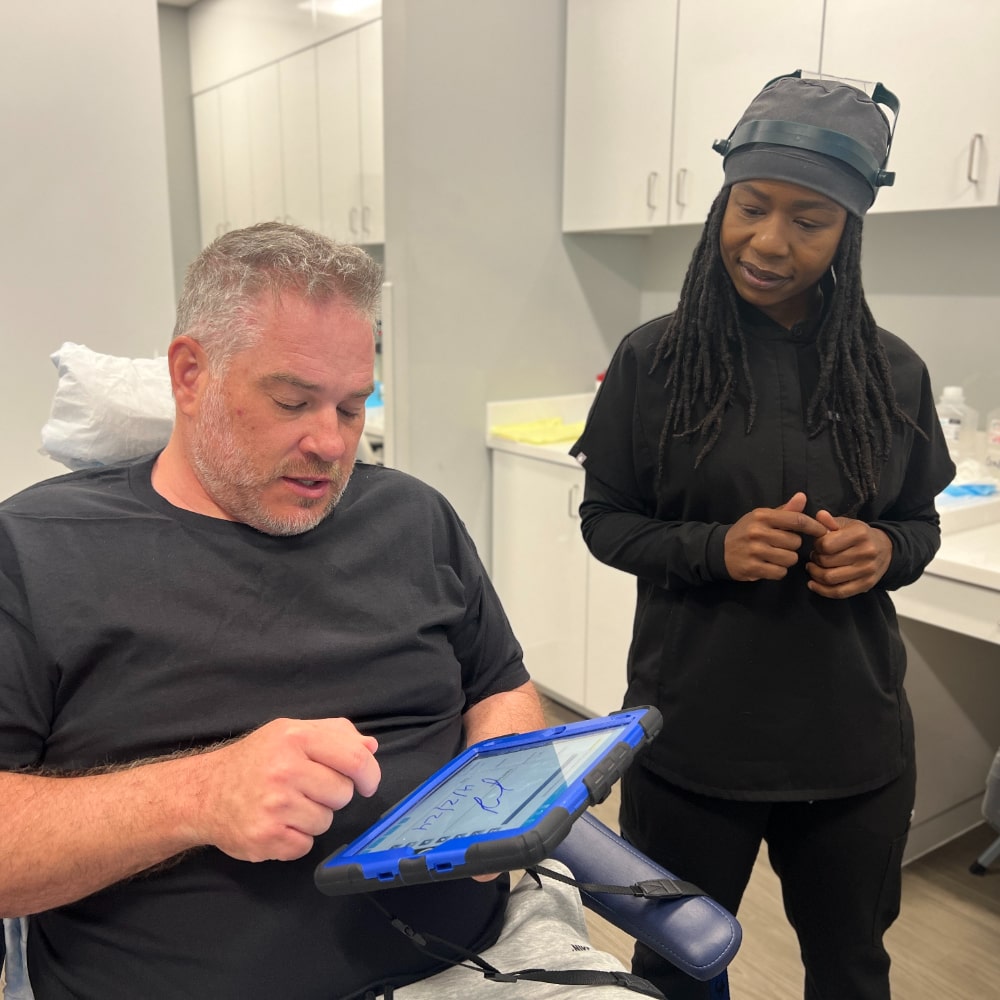
Jason began his surgery day by reading and signing the required consent forms. It’s important that all patients confirm their informed consent before any medical procedure.
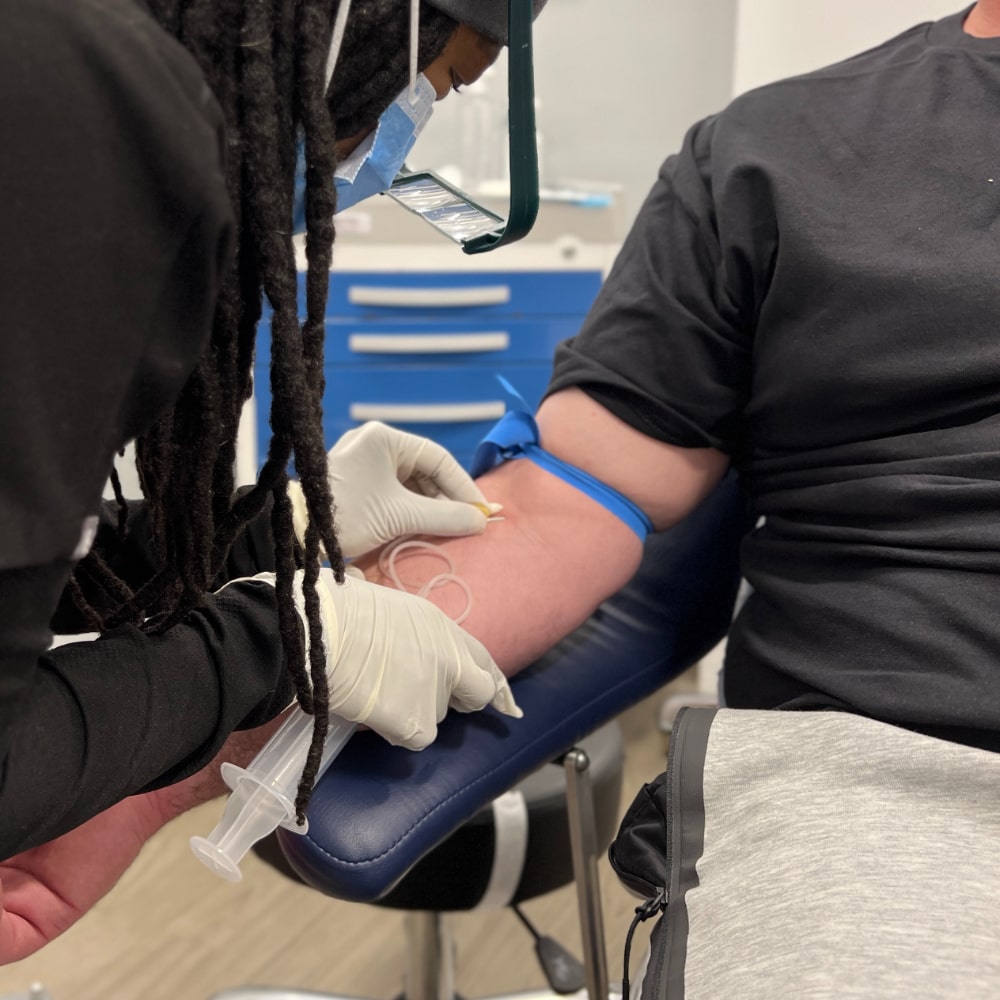
A technician carefully drew blood from Jason for platelet-rich plasma (PRP) therapy, a process that enhances healing and growth in hair restoration procedures.
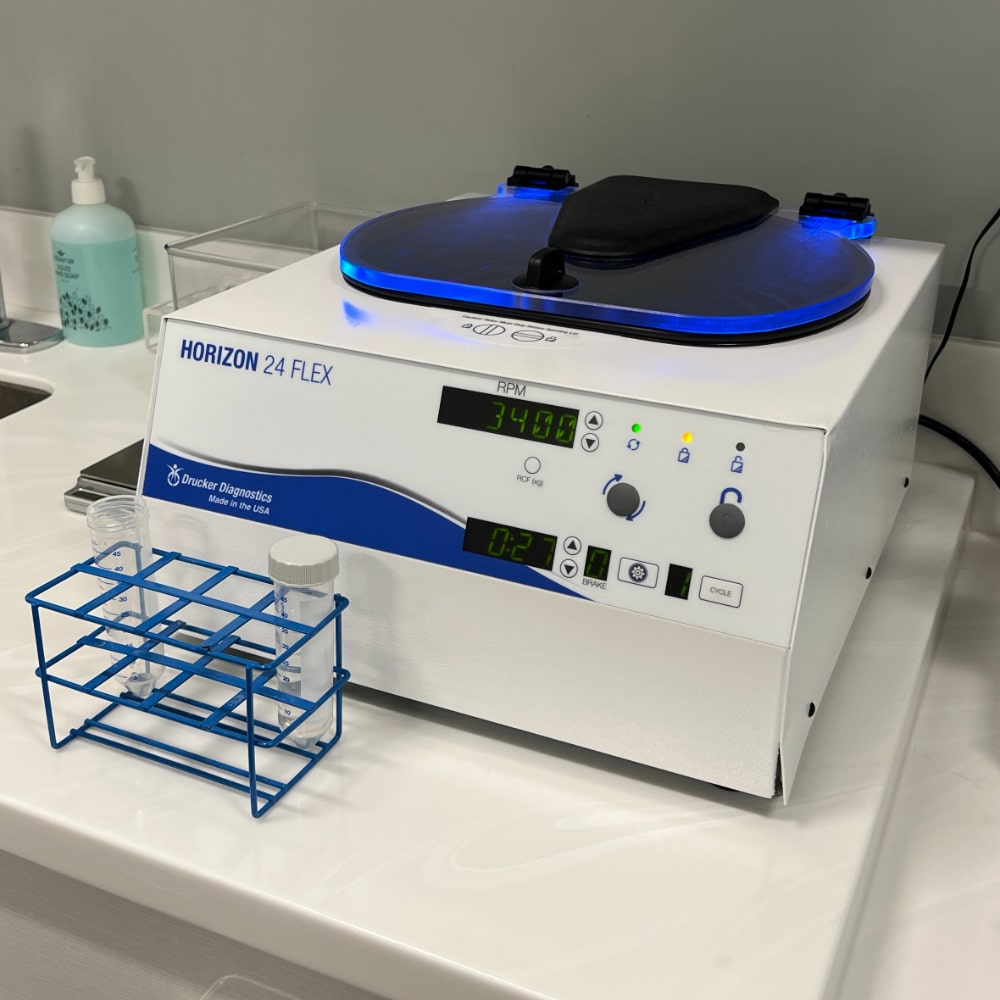
Jason’s blood was then placed in a centrifuge, which separated the red blood cells from the plasma and platelets, concentrating the growth factors that are vital for tissue regeneration.
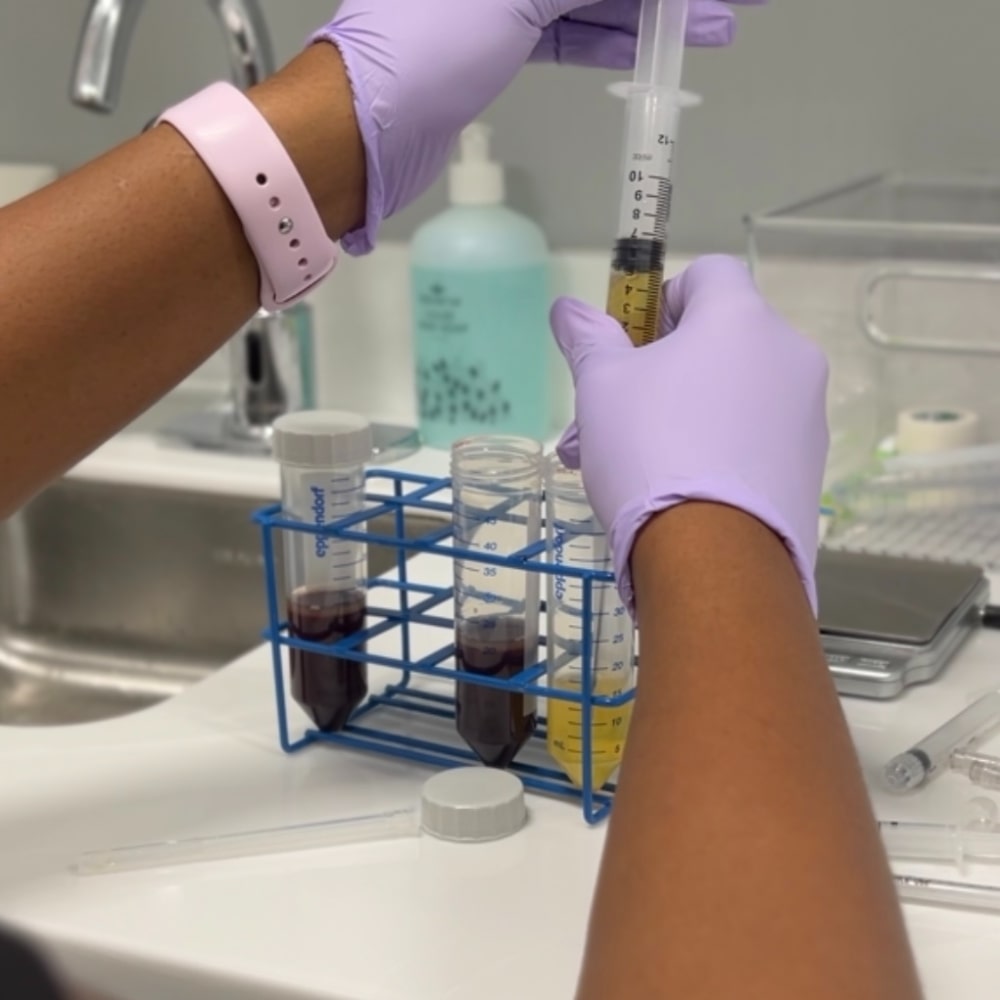
After spinning, the technician extracted the platelet-rich plasma (PRP), a yellowish substance now devoid of red blood cells, to be used later in the procedure.
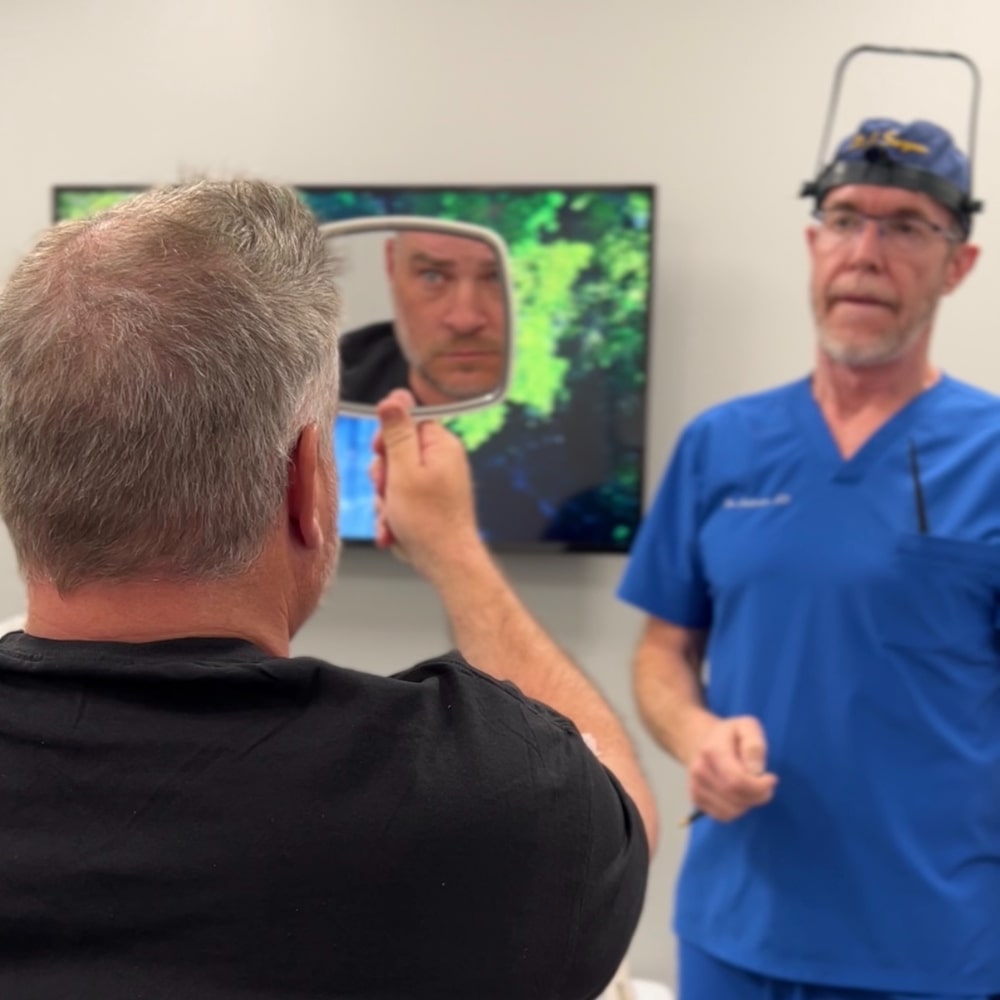
While the PRP was being processed, Jason discussed his hair restoration goals with Dr. Anderson, who carefully considered these preferences to tailor the surgical approach and placement of grafts.

Dr. Anderson then marked the new hairline on Jason’s scalp with a surgical marker. At this point, Dr. Anderson administered a mild sedative to keep Jason relaxed and to ensure his comfort throughout the procedure.

Next, photographs of Jason’s existing hair were taken from a variety of angles. These “before” images are essential for assessing the effectiveness of the treatment over time by comparing them with “after” photos.
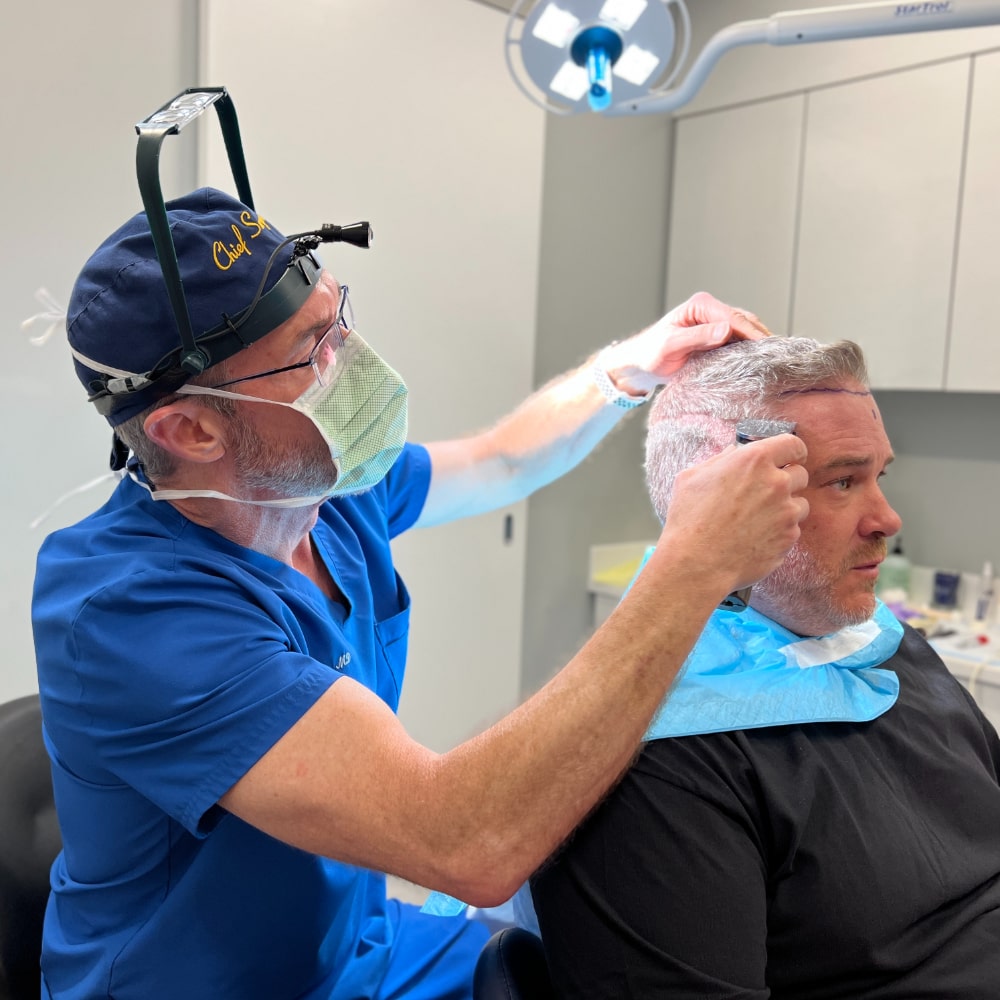
Jason received a haircut to expose the donor area at the back of his head, preparing him for the follicular unit extraction (FUE) procedure. The FUE method was chosen so Jason can wear a short haircut even after surgery.

A technician washed Jason’s hair to remove the loose pieces from the haircut and cleanse the scalp, preparing both the extraction and recipient sites.

Dr. Anderson administered local anesthesia to the donor area in the back to numb Jason’s scalp. Many patients fall asleep by this point in the day.

Next, Dr. Anderson used a biopsy punch and manually extracted a single graft to measure the length of Jason’s follicles. This determines the depth required for creating recipient sites.

Dr. Anderson then numbed the front of Jason’s head to ensure he experienced no discomfort during PRP injections, the site creation process, or during placement of the new hair grafts.

Dr. Anderson then injected half of the prepared PRP into Jason’s hairline in anticipation of the new grafts, reserving half of the PRP for the crown later in the procedure.
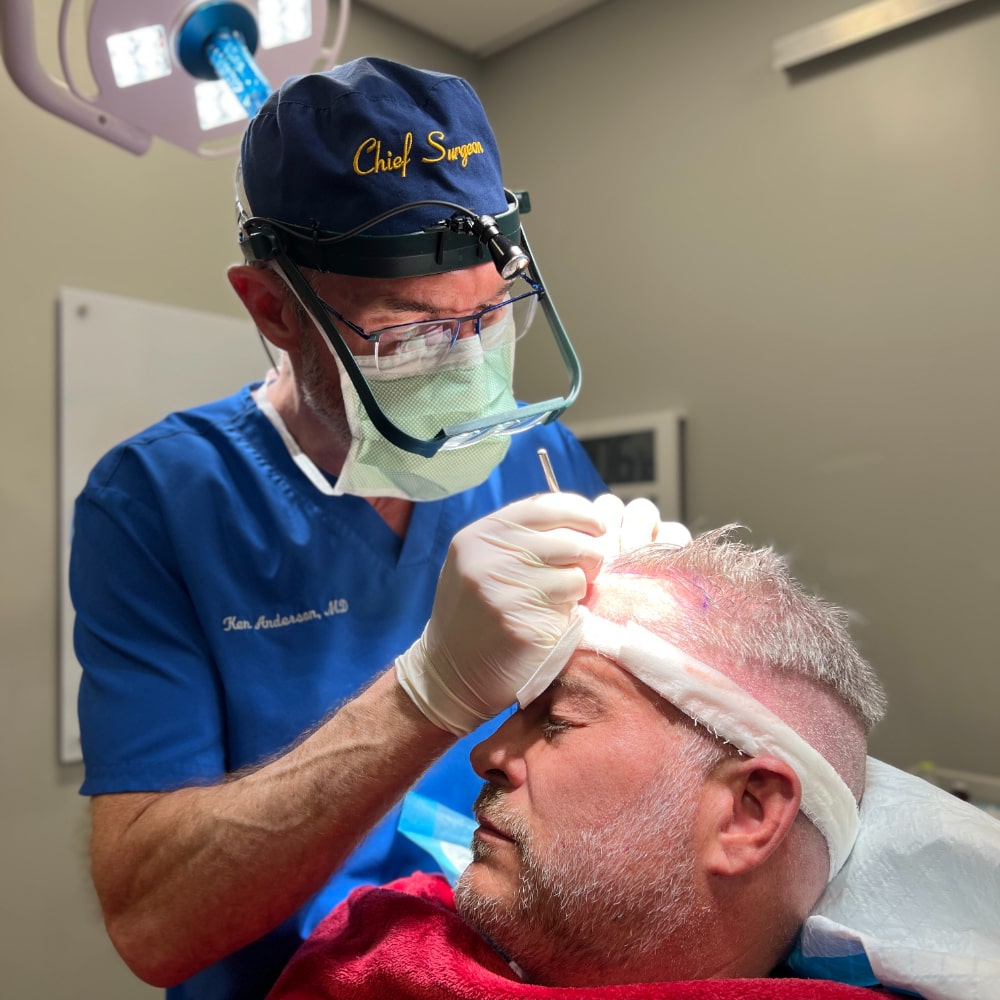
Dr. Anderson meticulously created a single incision for each and every forthcoming follicle, ensuring the angle of each matched Jason’s natural hair growth pattern. This ensures a natural-looking result.

Dr. Anderson then mapped and marked the areas on the donor site from which grafts would be extracted, ensuring an even harvest and aesthetically pleasing result.
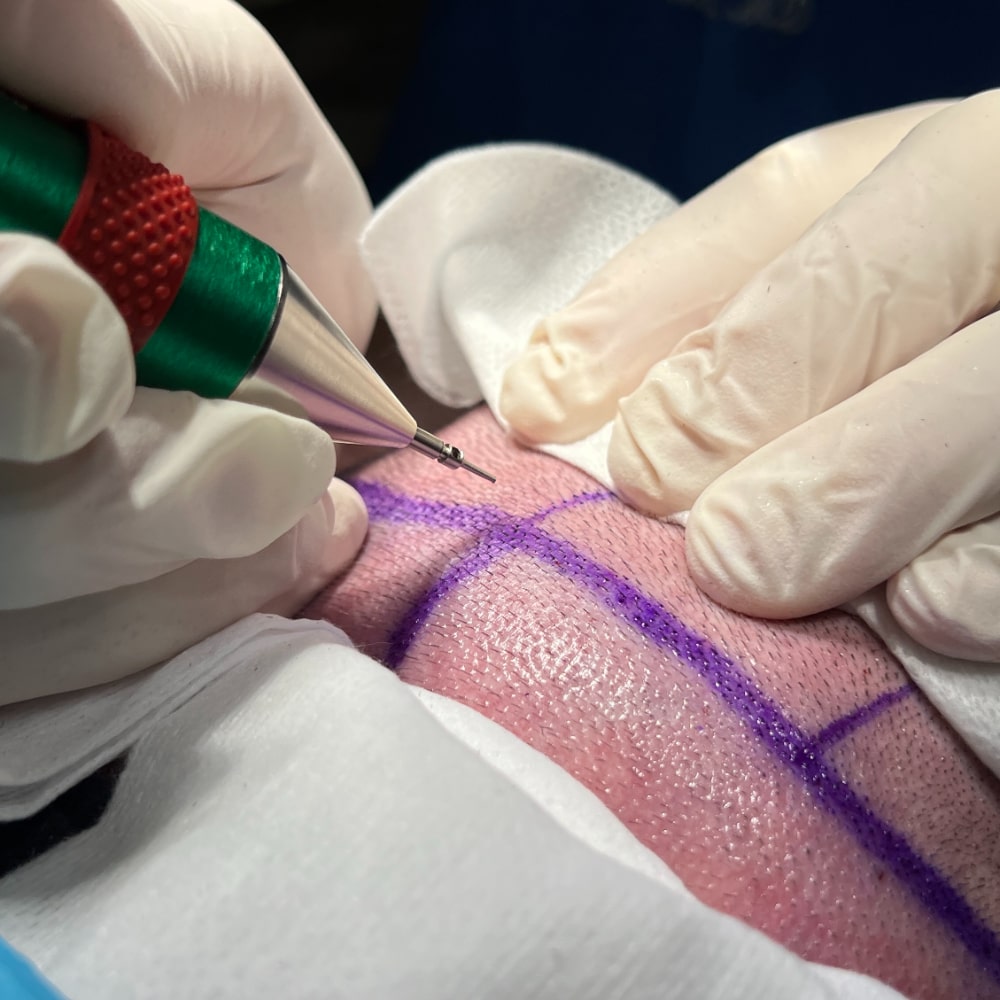
An extraction test was performed to ensure the proper functioning of the WAW device and to confirm the follicle depth from the manual test.

The number of sites created determined the required number of grafts to be cut, one by one, in the donor area.

After the WAW device made a tiny cut around each follicle, the grafts were removed using forceps and immediately placed in a surgical solution, on ice, to maintain their viability.

Technicians then trimmed excess tissue from each follicle under a microscope to prepare them for implantation, a step that maximizes the success rate of each transplanted graft.
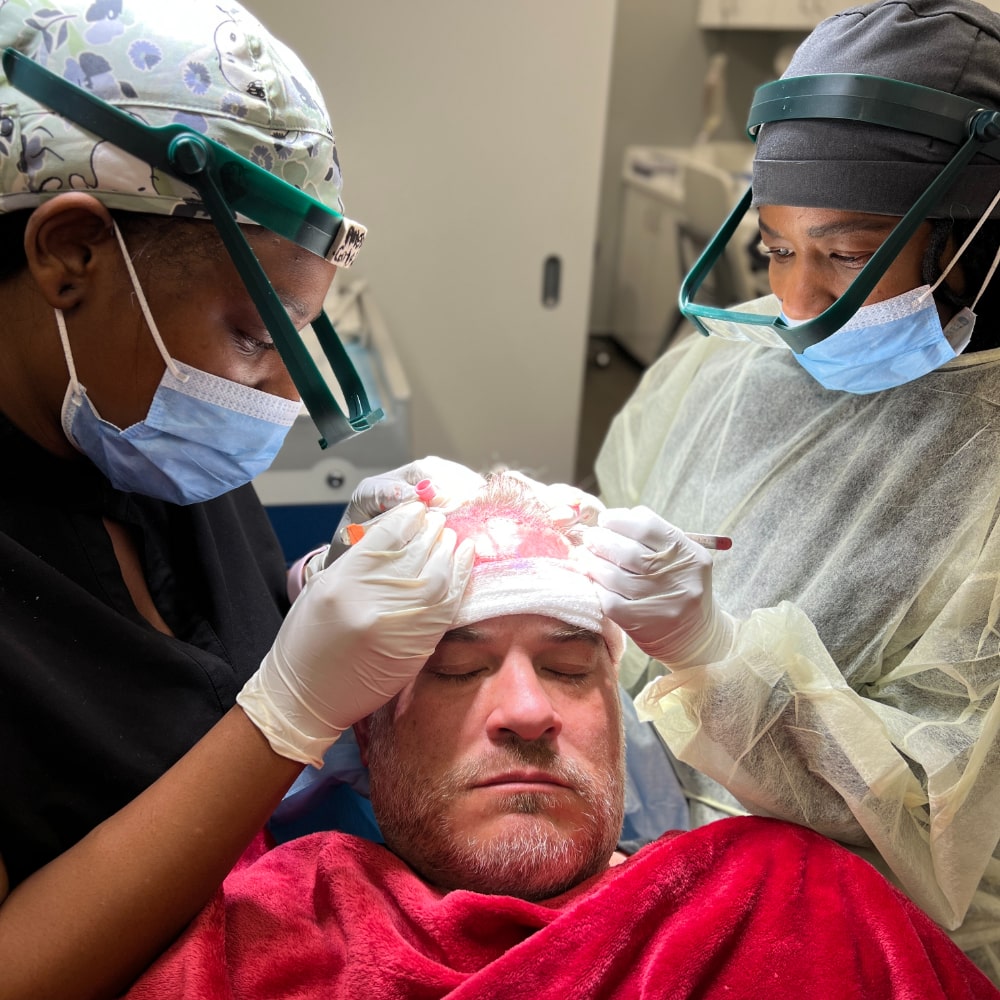
The entire team of technicians then implanted each trimmed graft into the pre-created sites on Jason’s scalp. This rapid placement minimizes the time grafts spend outside the body, which is crucial for their survival.

After all grafts were placed, Dr. Anderson addressed Jason’s early thinning at the crown by injecting the remaining PRP, as well as exosomes, aiming to stimulate natural hair regrowth.

Finally, Dr. Anderson used microneedling to enhance the scalp’s absorption of PRP and exosomes. This technique is believed to trigger the body’s natural healing processes, further boosting the efficacy of the treatment.




